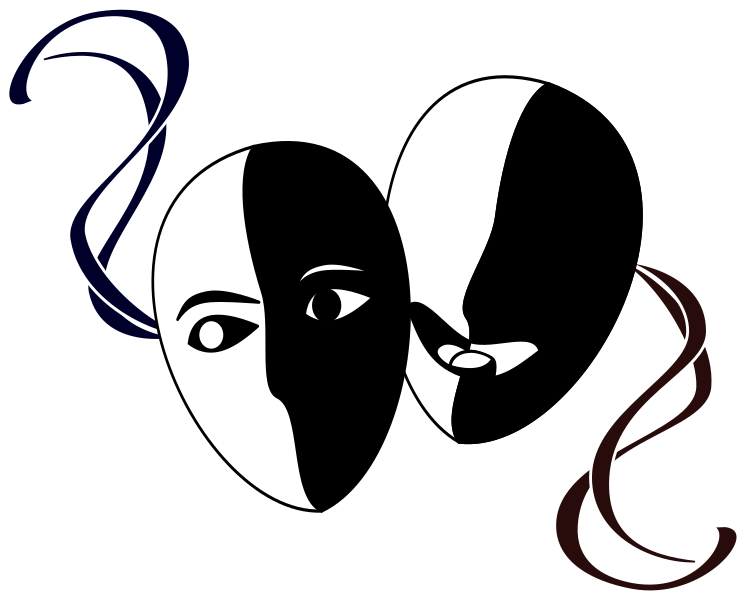
Show or Tell
“We can only live changes: we cannot think our way to humanity. Every one of us, every group, must become the model of that which we desire to create.” Ivan Illich
Every parent knows deep down, that to show, is better than to tell. And the best way to show is not through instruction, but by the way we live our own lives. If I spend all my time on my ‘smart’ phone, pontificating about community, in preference to connecting with my family and neighbours, that makes me a hypocrite. And quite honestly, sometimes I’m a hypocrite.
Being a model through the way we live our lives is ‘the gig’, not writing about it, or workshopping it, or designing models for others to implement. This is the truth that challenges me most. Like Illich implies, in the opening quote of this blog, you can’t think your way into this change, you’ve got to embody it.
Authentically showing up this way is not something I can be constructively held to account on. If someone tries to call me out and shame me into it, the best they can hope for is my compliance, or lip service. No one can hold me to account when it comes to authentically living into community, I have to choose to show up and make myself accountable.
There are a million ways I can choose to do so, from putting my phone away, to choosing to exercising in my neighbourhood park, instead of a city gym.
The same test of authentic choices can be applied to groups and organizations:
The Neighbourhood Association
The Neighbourhood Association says it wants a stronger more connected neighbourhood. “Where are the young people?” they say. Let’s stop saying “They don’t care” or “they’re the problem”. No, they just don’t care in the way we expect them to, but everybody cares about something. “How can we show up in their lives in a better way?” Better question, great start!
Where are all the other associations of the neighbourhood? Let’s figure out how to connect them into a wider conversation that invites their separate associational power towards something more powerful and collectively compelling, without at the same time, obliging them to join our association?
“That’s what we’re trying to do, but people are apathetic, they don’t come to the events we organize, or when they do, they just show up as spectators,” a member of the group counters. “Sure,”responds a fellow member, “but you know, everyone is apathetic about something, but no one is apathetic about everything.”
“Now that we know what others do to contribute to the situation we are are unhappy about, can I ask ‘What are we doing to contribute to that situation?’” Another members suggests. The room goes silent. People start to chuckle, they know each other too well to avoid that question.
“Can we change the dynamic, so we become even more interested in what they care about, than trying to convince them to act on what we believe to be the agenda of greatest importance?” And so they begin a community listening campaign – the plan is simple: give everyone a good listening to. They were never the same again. In the coming months they plan a party where all the associations will gather…
The Police Department
We want to promote community safety, and a wider sense of civic responsibility around neighbourhood issues, so crime prevention becomes everybody’s business; not just uniformed police.
Why not release interested staff for 5 hours a week to do things in their community that promote more engagement and connection. Only rules: no uniforms; do what you enjoy as a neighbour, not as an officer; and share the stories.
So officers get five hours off each week to be neighbours on full pay, because it’s authentic to the organizational mission. They are freed up to be the change they seek, ‘models out of uniform’.
One officer is a member of the local rugby club. She organizes street rugby, with an ulterior motive, after the street game the young players call on seniors in the neighbourhood (many of whom have been watching the practice games) and escort them to the shops to get their groceries, and carry them back. The locals joke that now they have their own ‘escort service’.
The Doctor’s Surgery
Who says the Doctor’s surgery is only for the sick? In at least one neighbourhood it’s a community centre, where groups hold meetings and activities as well as being a waiting room, they are of course mindful of those that are unwell. But they are also aware that 1 in 5 people who go to the doctor are not ill, they are lonely, and what they need is community, not medication. It’s not unusual to see a meeting about what to do around the upkeep of the bowling green, now that Harry is no longer in a position to maintain it.
In this neighbourhood’s surgery, many a person who was on their way to see their doctor never made it from the waiting room to the Doctor’s office because their skills were needed elsewhere. They found the antidote to their loneliness: community. In these community spaces the doctor is regularly stood up; not by people who need to see her, but by those who need their neighbours.
When the option is to show or tell, try your best to authentically model that which you desire to create, and so will I.
Cormac Russell
